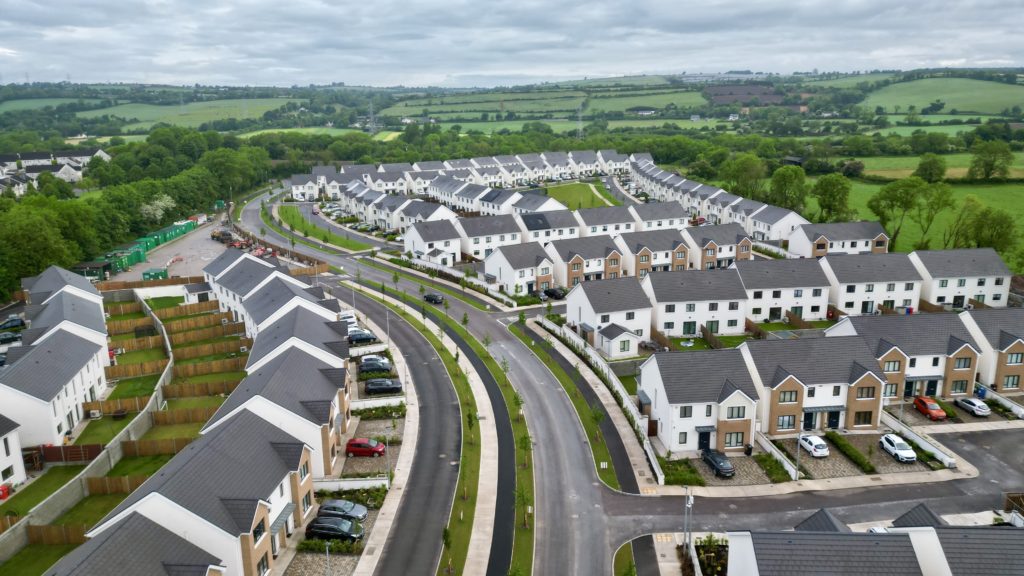Rents nationally grew by 7% on an annual basis in Q2 2021, according to the latest rent index from the Residential Tenancies Board (RTB).
This marks the highest national growth rate seen since the first quarter of 2019.
The national standardised average rent stood at €1,352 in the second quarter, an increase of €32 compared to the previous quarter.
Dublin had the highest standardised average rent in the three months from April to June at €1,848 a month.
The county with the lowest monthly rents was Donegal at €677 a month.
The RTB said that at a Local Electoral Area (LEA) level, the highest standardised average rent was in Stillorgan in Co Dublin at €2,440 a month.
The lowest was seen in Ballymote-Tobercurry in Co Sligo at €645 a month.
The figures show that the standardised average rent for houses stood at €1,347 a month, an increase of 3.4% on the previous quarter and a rise of 9.1% compared to the same time last year.
Meanwhile, the standardised average rent for apartments stood at €1,379 a month, up 1.9% on the first quarter of 2021 and 5.5% in the second quarter of 2020.
Galway City had the second highest standardised average rent level in the second quarter at €1,355, while the standardised average rent in Cork City stood at €1,344 a month was €1,196 in Limerick City.
The only city with standardised average rent lower than €1,000 a month was Waterford City where it was €969 a month, the RTB added.
The index also reveals that 10 counties have standardised average rents above €1,000 a month - Cork, Dublin, Galway, Kildare, Kilkenny, Laois, Limerick, Louth, Meath and Wicklow.
On a quarterly basis, rents rose in all but three counties in the second quarter of 2021.
Rents in Leitrim increased the most with a quarterly growth rate of 17.6%. On the other hand, rents in Louth experienced the largest quarterly decrease, falling by 0.5%.
The RTB said that the standardised average rent in the Greater Dublin Area (which includes Meath, Kildare and Wicklow) stood at €1,397 while it was €1,007 outside the GDA.
It also reported a decline in the number of tenancies registered with the RTB. Its index for the second quarter of 2021 had 13,884 tenancies compared to 16,085 in the first quarter of the year.
Pádraig McGoldrick, Interim Director of the RTB, commented on the latest Rent Index findings: “In Q2 2021, the Irish economy began to emerge from lockdown with a phased reopening, and people began to readjust to their living and working situations. The Q2 2021 Rent Index provides an important insight into how the rental sector is adapting to these changes.
"From the initial early pandemic slowdown and reduction in rent levels, rents nationally have rebounded quickly, mainly driven by activity outside of Dublin. In particular, rents are continuing to increase more rapidly along the commuter belt and more slowly in Dublin and other urban areas indicating that the pandemic has seen an immediate impact of people moving from urban areas, particularly Dublin. This may reflect an emerging trend around long-term working and lifestyle choices.
"Nevertheless, there is a lot of uncertainty around the emerging trends. It must be noted that the period since the onset of the pandemic has seen the introduction and subsequent easing of restrictions in line with the public health measures. This is likely to have had an effect on the trends throughout 2020 and 2021 which may not be permanent.
"In addition, the latest rent levels have not been impacted by recent rent control measures restricting increases in rents to rises in inflation measured by the Harmonised Index of Consumer Prices (HICP). The RTB will continue to monitor the trends to inform policy and support emerging needs in the sector.”
Mr McGoldrick added: “While the latest rent levels will not yet have been impacted by the change in rules for rent setting introduced in July, the level of increase in Q2 2021 is a source of concern and, while there may be legitimate reasons reflecting the rate of increase, it may also indicate an unacceptable level of non-compliance by landlords with rent setting regulations restricting rent increases in Rent Pressure Zone areas (RPZ). The impact of not complying with these measures can be very severe, and the RTB is committed to ensuring increased compliance with these requirements.
"Where landlords circumvent the legislation in relation to RPZ rent caps, the RTB has the power to investigate and apply sanctions, with fines of up to €15,000 and/or costs up to €15,000. As of quarter 2 2021, the RTB has commenced almost 400 investigations into improper conducts and to date almost €260,000 has been refunded to current and former tenants as a direct result of breach of rent setting rules.
"On the basis of a request from Minister Darragh O’Brien, the Minister for Housing, Local Government and Heritage, the RTB will escalate its response and introduce an accelerated and focussed campaign to identify and, where necessary, pursue those who abuse or ignore their rent setting responsibilities.”





